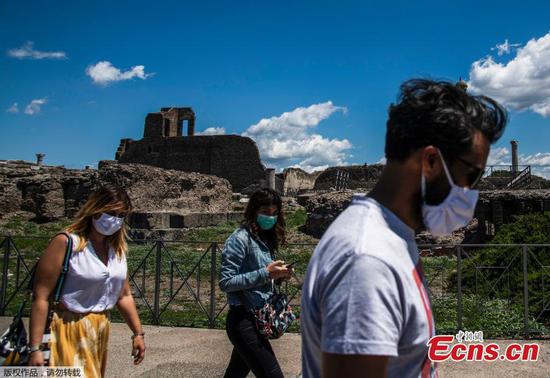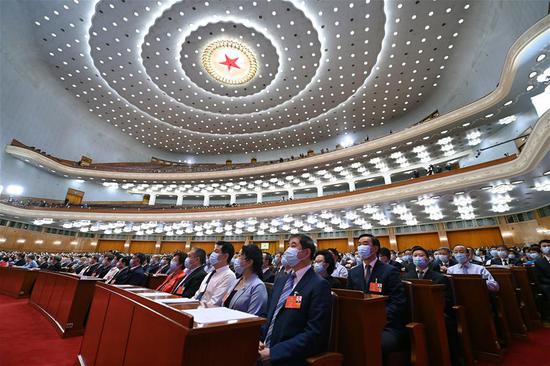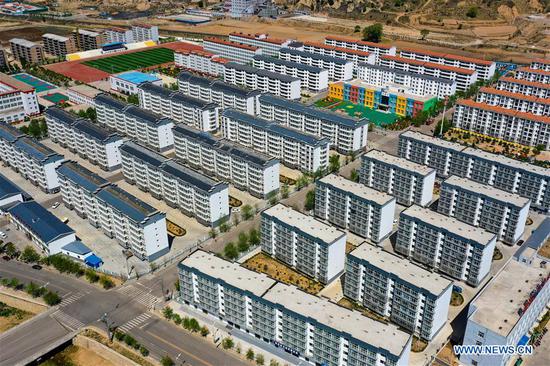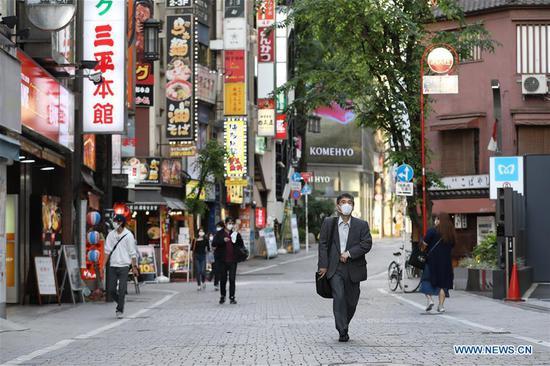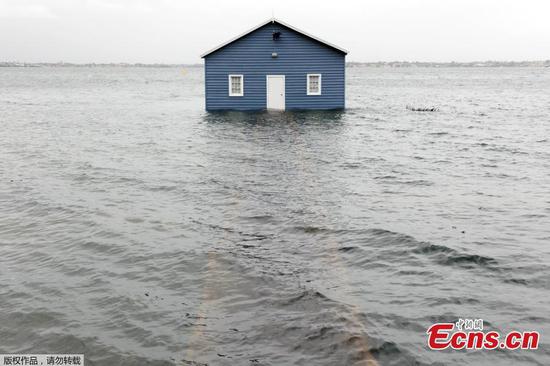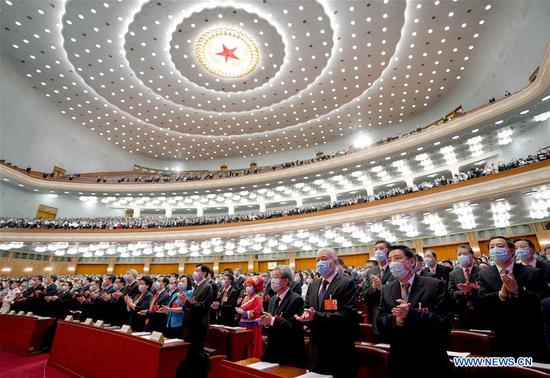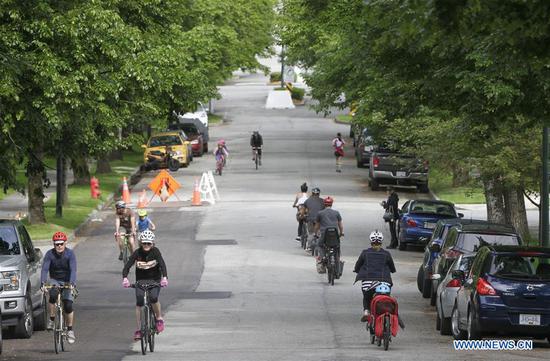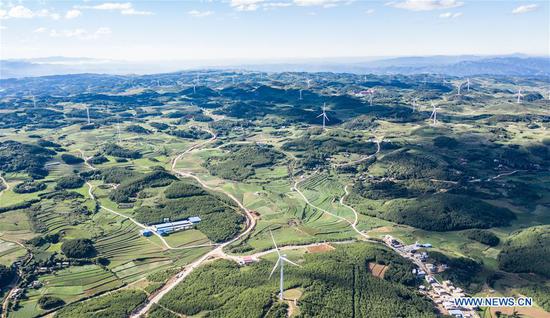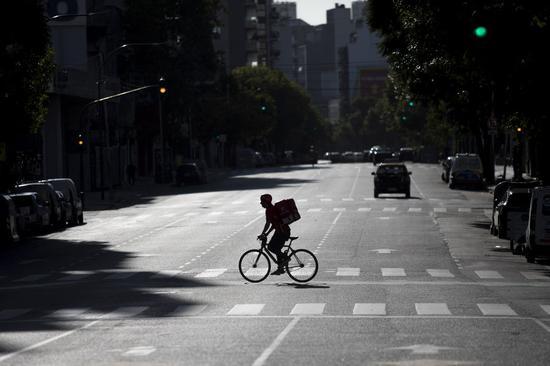
A man rides across an empty street in Buenos Aires, Argentina, April 8, 2020. (Photo by Martin Zabala/Xinhua)
Argentina recorded 723 daily new cases Sunday, the highest since its first COVID-19 case on March 3, while the country is taking measures to cushion the fallout of the pandemic.
So far, 12,628 people have tested positive and 471 people have died from the disease. More than 80 percent of the cases are concentrated in the capital Buenos Aires and the metropolitan area, which encompasses some 40 surrounding towns.
President Alberto Fernandez has extended the lockdown to June 7, and enforced restrictions more strictly in the Buenos Aires area, while other provinces began to gradually ease restrictions.
In the metropolitan area, officials have launched Detect, a testing program designed to better control the spread of the virus in particularly hard-hit communities.
On the economic front, economic activity fell 11.5 percent in March compared to the same period in 2019, according to the Economy Ministry's monthly estimate.
With that in mind, the government moved to help the more vulnerable, including small and medium-sized businesses (SMEs) and low-income households, by expanding the monetary base, that is, putting more money in circulation, as a way to counter the economic impact of the pandemic.
It created an "Emergency Household Income" of 10,000 pesos (146 U.S. dollars) for informal workers such as domestic workers, and those with no steady income.
It also launched an emergency aid program for workers and production that aims to protect jobs and ensure productivity by helping, among others, tourism-related enterprises like hotels and travel agencies.
SMEs are temporarily exempt from paying state taxes, and there is a freeze on rents and evictions, zero-interest loans for freelancers and the self-employed, and preferential loans for companies.
Key production has been maintained at pre-pandemic levels in Argentina, but some analysts believe the government may not have the capacity to keep up its aid programs.
"While the government is trying through social and economic policy to mitigate the impact of inactivity, a particularly fragile fiscal situation will limit its capacity to sustain the current conditions over time," the Center for the Implementation of Public Policy for Equity and Growth (CIPPEC) said in a recent report.
"The challenge that public policy faces is considerable: it presumes a re-engineering of the productive process on an unprecedented scale, amid a health and economic emergency, and with limited resources," said the center.
Despite being one of the Latin American countries most highly regarded for its capacity to mitigate the impact of COVID-19, Argentina faces many uncertainties about its economic future following the pandemic, given its weak financial and fiscal situation.









